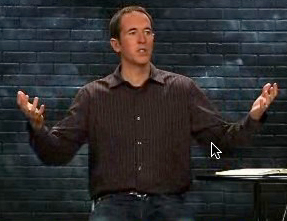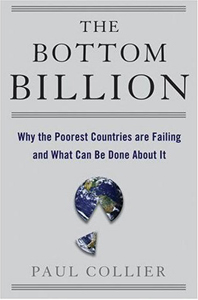The loss so many of us have suffered (directly or indirectly) as a result of the dramatic downturn in our economy has been both very real and very painful. As a result there has been a contraction that is not only felt in the economy but in our ability to see the magnificent opportunity we have at such a time like this. We know the facts: 1) God is good – He cares about me and my family; 2) Our relationship with Christ is strengthened during times of suffering; 3) There are others with greater needs then us; 4) The gospel is for exactly such a time as this; and 5) We are the ones blessed and now called to bring Christ’s redemption to those around us.
What we don’t know so well (because so many of us have never experienced times like this before) is the opportunity. What if the vision to build bridges to our community was for such a time as this? What if that vision was manifest primarily by reaching people in real need? What if living that vision started now – completely disassociated with any relocation plans? What if we trusted God with our future and focused on the needs at hand?
Some of us have answers to these questions: 1) It’s not that bad in Tallahassee; 2) Give it a year or two and things will be getting back to normal; 3) We are already serving the community – look at what OFS does each week.
Let’s say for argument these answers prove to be true – can we say we have acted like Christ by just maintaining the status quo? What if it takes five years to “get back to normal?” What if things get worse?
Here’s a course of action that needs our serious consideration (pertaining to Wildwood Church):
1) Admit that the relocation project is stalled.
2) Admit that leadership has been detached from one another and in disunity for some time and that only recently have steps begun to correct this problem.
3) Admit that our finances are in decline – presumptively because of the economy.
4) Admit that we are not sure when we will move forward with relocation plans but to do so now would be not only imprudent but an unethical use of resources with the increasing needs in our church and community due to the state of the economy.
5) Offer to return funds to people who gave to the relocation project who are experiencing financial hardship or who are dissatisfied with the lack of progress with the relocation plans.
6) Get permission to use the funds given to the relocation project to meet extraordinary needs of individuals and families in our community who have been affected by the economy.
7) Implement a church-wide collaborative form of communication to identify those extraordinary needs and solutions for those needs.
Risky? Without a doubt. What if people take us up on the offer to get their relocation contributions back and we give the rest away to people with extraordinary needs (and we do all that with a diminishing general fund)? But then think about the risk if we don’t act. What value is a vision to reach our community that we largely ignored during a time of crisis?
Perhaps it is premature to sound the alarm – perhaps this recession will not get much worse and be over sooner than expected. I am not a pessimist by nature but these are truly uncertain times – we have never tried to come out of a recession when the rest of the world was in it with us and the financial system had experienced such widespread failure.
No one knows the rules of how this game gets played out. Hoping for a soft landing and a speedy recovery is not a bad thing but I also don’t think it is a bad thing to discern what God would have us be about. Could it be that these uncertain times are the very windows of opportunity to advance God’s kingdom in our community? I think that this may be the real – the reality of what God is up to – that we need to be about.










Recent Comments